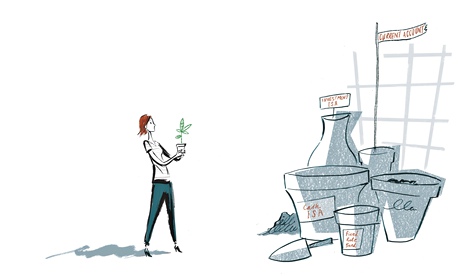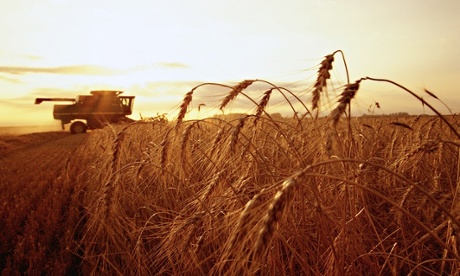The "Bank of Grandma and Grandpa" paid out billions of pounds to the nation's youngsters during 2013, according to a survey this week. Specialist insurer Partnership claims that Britain's 14 million grandparents collectively gave £2.8bn directly to their grandchildren last year. And a sizeable chunk of that total will have been handed over at Christmas in the form of a cheque or a banknote or two tucked inside a card.
If these lucky youngsters have managed to resist the lure of the Boxing Day and January sales, perhaps now is the time to get them into the savings habit.
Children's savings accounts, like those for adults, come in various shapes and sizes – instant access, regular saver, fixed-rate bond and so on. The good news is that the interest rates can sometimes be better than those offered on standard accounts. The bad news is that some big-name banks pay paltry rates. For example, HSBC's Future Saver for Children account pays 0.5% interest, while the Co-operative Bank's Bonus account has a rate of just 0.25%, though at least the latter comes with a decent perk to reward saving: a £10 annual cash bonus from age 13 to 18.
Some accounts offering the highest returns – up to 6% – are aimed at parents and relatives who want to build up a nest-egg for a child, typically by monthly payments or a lump sum.
Then there are the accounts aimed more at the children themselves. These typically offer instant access and usually come with a passbook or cash card, allowing children to learn about managing their money. Some parents may take the view that a friendly local branch and a passbook are more important than a table-topping interest rate, bearing in mind it will probably be relatively small sums – pocket money and the odd birthday or Christmas gift – going in.
But before handing over a cheque, ask if there is a child trust fund or Junior Isa already set up for them that you can pay money into (see panel).
Better-paying accounts include:
The Kids' Regular Saver from the Halifax is a 12-month account aimed at those looking to save some money for a child. It offers fixed 6% interest, and you can pay in from £10 to £100 each month by standing order. It's for children aged 0-15, although the person opening the account must be over 18. The interest is paid on maturity – ie after 12 months – and no withdrawals are allowed. If you pay in £50 a month, you'll earn £18.97 gross (or £15.18 net). To apply, make an appointment at your local branch. In addition to your own ID, you'll need the child's birth certificate or passport.
The Junior Easy Saver from Dudley building society works in a similar way, allowing you to save up to £150 every month for a year. The (variable) interest rate is currently 3.5%, and again this is an account designed to benefit under-16s.
The Children's Regular Saver Issue 1 from Barclays lets you save between £5 and £100 a month over one year for a child under 16. You earn a fixed rate of 3.5% for months where no withdrawals have been made, and 1.51% for months where one or more withdrawals have been made. An adult has to open the account, operating it as a "trustee".
The Young Saver account from the Halifax is, says the bank, ideal for showing under-16s how to manage their money. It pays 3% on balances from £1 up to £20,000. Benefits include unlimited withdrawals and a cash card for children aged seven or older. The person opening the account must be over 18.
Bank of Scotland, Lloyds Bank and TSB all offer versions of Young Saver that also pay 3%, though in the case of Lloyds and TSB, the adult opening the account must hold one of their current accounts.
The Leap Account Issue 2 from Skipton building society pays a variable 2.75%, including a 0.5% interest bonus for the first 12 months, and can be opened with just £1. The child can hold the account until their 18th birthday. For children under eight, an adult must open the account, and they will need to sign a withdrawal slip when the child wants to take money out. There are no restrictions on withdrawals, aside from a £250 daily cash limit.
Green and ethical options include Charity Bank, which lends only to charities, social enterprises and community organisations and offers "ethical saving for under-16s" via its Small Steps account, which pays 2% interest. When you open the account you choose the amount you want to put in, and the fixed period: either one, three or five years (the rate is the same whichever period you choose). At the end of the period, the money can be paid to the young saver or reinvested into another Small Steps account. The minimum amount needed to open an account is £10.
Reliance Bank – aka the Salvation Army Bank – offers the Kidz and Teenz accounts for 0 to 10s and 11 to 17s, both paying 1.5%. Each can be operated online and the latter comes with a cash card from the age of 13. The bank says its investments "are made within strict ethical boundaries", with profits used to further the Salvation Army's evangelical and charitable work.
Ethical bank Triodos has the Right Start Saver account for children under 18. It's an easy-access account operated online or by post, and an adult can open one on behalf of a child up to 15, while a youngster aged seven or older can open one in their own name. But the variable interest rate is currently only 0.8%.











